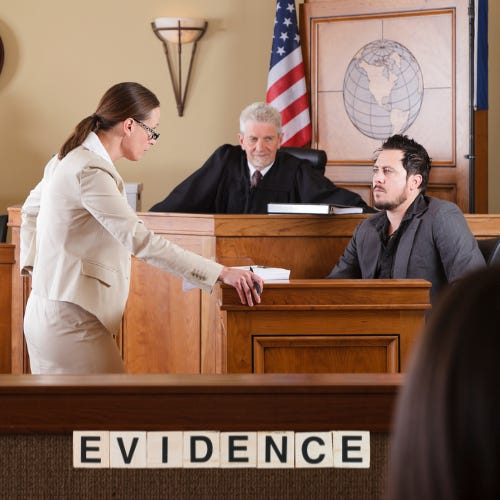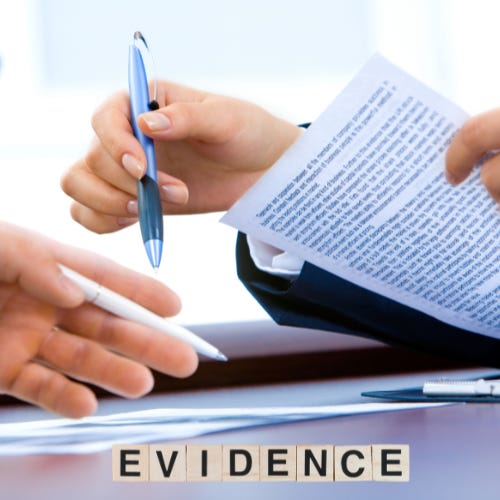The rules of evidence govern the use of testimony (oral or written statements) and exhibits (physical documents), and/or other material which is admissible in a judicial or administrative proceeding.
Evidence is an essential part of our judicial system, permeating all aspects of legal practice. Every lawyer, regardless of specialization, must be able to understand and apply evidentiary principles.
Trial lawyers use the rules of evidence daily, as they forms the foundation of courtroom advocacy and determines what information can or cannot be presented to judges and juries.


Transactional attorneys need to understand the rules of evidence so they know how the contracts and agreements they prepare for their clients every single day can be challenged or defended using evidence.
Indeed, all lawyers must understand evidence, even those who never enter a courtroom. This is because all legal practice operates under the shadow of potential litigation.
Keep reading with a 7-day free trial
Subscribe to Understanding Evidence to keep reading this post and get 7 days of free access to the full post archives.




